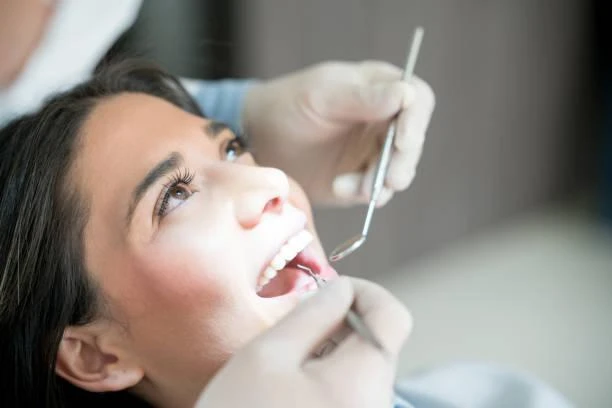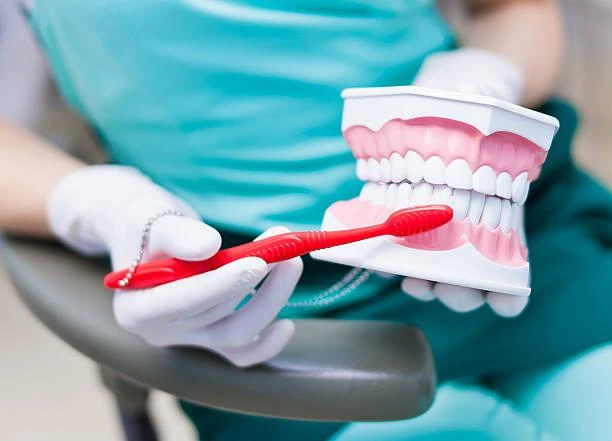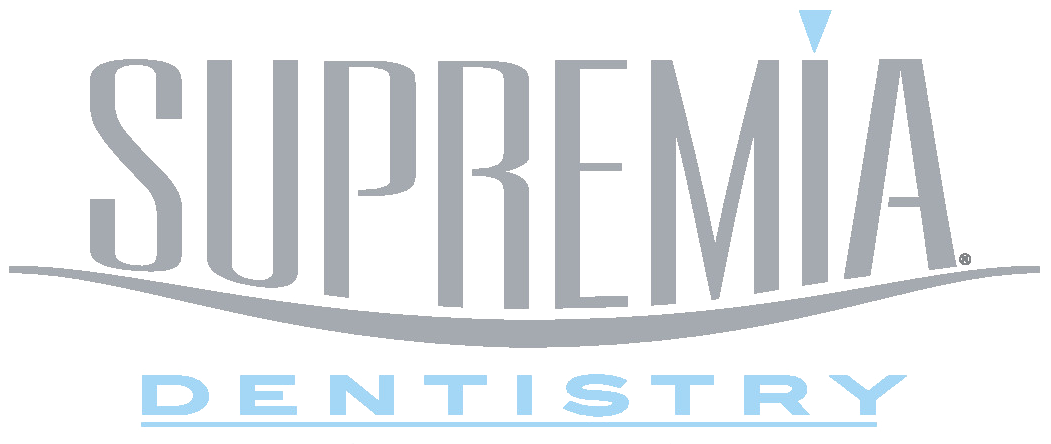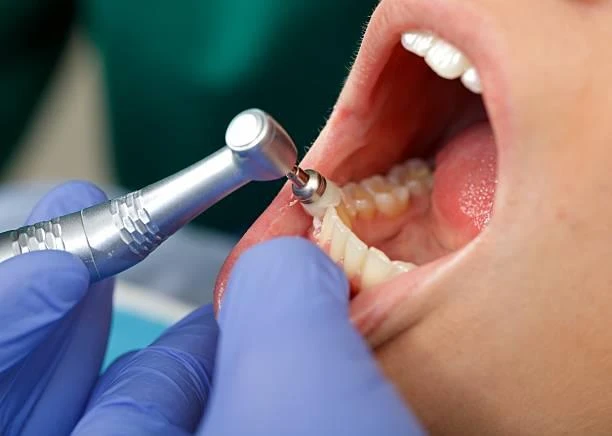When it comes to maintaining a healthy smile, dental cleanings are one of the most essential steps. It’s not just about having a bright, white smile—though that’s a great bonus—but it’s about ensuring your teeth and gums remain in top shape.
Supremia Dentistry knows how important regular dental cleanings are, not just for aesthetic purposes but for your overall health. By scheduling regular cleanings, you can prevent serious dental issues before they even start.
But what exactly happens during a dental cleaning? Why is it so important and what can you expect from your visit? Let’s break down everything you need to know about dental cleanings—from the basics to the benefits—and why you should never skip your routine visits.
What Does a Dental Cleaning Entail?
Dental cleanings, often termed prophylaxis, is a preventive dentistry treatment performed by dental professionals. It involves the thorough removal of plaque, tartar, and stains from your teeth, which cannot be fully addressed through everyday brushing and flossing alone.
Why Are Dental Cleanings Necessary?
Regular dental cleanings offer numerous benefits that go beyond just having a bright smile. Some of the key advantages include:
- Prevention of Cavities: Regular cleanings remove plaque, which is a leading cause of tooth decay.
- Gum Disease Prevention: By removing tartar and plaque, dental cleanings help prevent gingivitis and periodontitis.
- Fresher Breath: Regular cleanings can reduce bad breath by eliminating bacteria that cause odors.
- Overall Health Improvement: Good oral health is linked to overall health, reducing the risk of conditions like heart disease and diabetes.
In essence, neglecting regular dental cleanings can lead to severe oral complications that may require more complex and costly treatments in the long run.
How Often Should You Get a Dental Cleaning?
Most dental professionals suggest scheduling a dental cleaning every six months to maintain optimal oral health. However, the ideal frequency for your cleanings might differ based on your individual oral health needs. Some people may need more frequent cleanings to address specific concerns.
Factors That Affect Dental Cleaning Frequency
Several aspects can influence how often you should have your teeth cleaned, all depending on your unique oral health profile. For instance:
- Oral Health History: If you have a history of gum disease or frequent cavities, more frequent cleanings might be necessary.
- Smoking: Smoking often results in greater plaque and tartar accumulation, which may mean you need to schedule cleanings more often.
- Age: Children and older adults could require a different cleaning schedule to address their particular oral health considerations.
Signs You Might Need a Dental Cleaning Sooner
While it’s generally recommended to have a dental cleaning every six months, certain signs may indicate the need for an earlier visit. These include:
- Bleeding gums: A sign of gum disease, which can worsen without cleaning.
- Bad breath: Persistent bad breath could indicate plaque buildup or gum disease.
- Tooth sensitivity: Sensitivity to hot or cold can be a sign of gum recession or enamel wear.
- Stains: If you notice stains on your teeth that don’t brush away, a cleaning can help.
Taking charge of your dental health means recognizing when it’s time for a cleaning and acting promptly to address any issues before they escalate.

Preparing for a Dental Cleaning Appointment
To make your dental cleaning appointment as smooth and effective as possible, it’s essential to be well-prepared. Here’s how to get ready:
Brush and Floss Before Your Appointment
While brushing and flossing before your appointment is not a substitute for the professional cleaning you will receive, it helps remove food particles and plaque. This practice can make it easier for your dentist to assess your oral health and identify any issues more efficiently.
Make a List of Questions
If you have any questions or anxieties about your oral health or the dental cleaning process, create a list in advance. This way, you can talk about everything during your visit and leave knowing more about your dental status.
Arrive a Few Minutes Early
Getting to your appointment a few minutes early allows you to relax before your appointment and complete any necessary paperwork. It also gives you a chance to update your dental history if there have been any changes since your last visit.
With these preparatory steps in place, you can approach your dental cleaning appointment with confidence, knowing that you’ve set yourself up for a productive and informative visit.
What Happens During a Dental Cleaning?
Your dental cleaning appointment is a cornerstone of effective oral care. Familiarizing yourself with the steps involved can help minimize any apprehension and lead to a healthier, more radiant smile at the end of your appointment.
The Step-by-Step Process
The following provides essential insights into each part of the cleaning process:
Preparation
Before your cleaning begins, a dentist or hygienist will review your dental history and discuss any concerns you may have. This is the perfect opportunity to address any questions or mention any discomfort you’ve been experiencing, ensuring that your cleaning is tailored to your needs.
Dental Examination
As the cleaning session starts, an in-depth evaluation of your mouth will be conducted, with special attention to spotting any signs of gum disease, cavities, or other dental health issues to facilitate prompt treatment.
Scaling
The next phase involves scaling, where plaque and tartar are meticulously removed from your teeth, especially around the gum line. This is done using specialized instruments designed to handle stubborn deposits that regular brushing might miss.
Polishing
After scaling, your teeth will be polished to remove any remaining stains and smooth the surfaces. This step not only makes your teeth look brighter but also makes it harder for plaque to accumulate on the smooth surfaces.
Flossing and Rinsing
Even if you regularly floss at home, the professional flossing conducted during a dental cleaning can effectively reach hard-to-access areas, resulting in a more thorough cleaning of your teeth. They may also use a specialized rinse to aid in the removal of any remaining particles and bacteria.
Fluoride Treatment (Optional)
In many dental cleanings, a fluoride treatment is provided to boost tooth strength and prevent cavities. This mineral helps to maintain enamel health and fight off bacteria. The process involves applying a gel or foam to your teeth for a few minutes.
Final Examination and Recommendation
Upon completion of the cleaning, a concluding examination may be carried out to detect any residual concerns. Recommendations for ongoing oral care, including brushing, flossing, and mouthwash use, will also be provided.
How Long Does a Dental Cleaning Take?
A typical dental cleaning takes about 30 to 60 minutes. The exact time can vary depending on the amount of plaque and tartar buildup and whether you are having a fluoride treatment. It’s a small time investment for a big payoff in your oral health.

What to Expect After a Dental Cleaning?
After your dental cleaning, there are several important steps and considerations to keep in mind to guarantee your oral health remains in excellent condition. Here’s what typically happens and what you should do following your appointment:
Temporary Sensitivity
It’s common to experience some tooth sensitivity following a dental cleaning, especially if plaque or tartar was removed from sensitive areas. This sensitivity is usually short-lived and should diminish within a few days.
Post-Cleaning Care
Your dental professional may outline key actions to take after your cleaning. These might include:
- Avoiding Certain Foods: It’s a good idea to avoid very hot, cold, or sticky foods for a few hours after your cleaning. This helps minimize sensitivity and allows your teeth to adjust to the polishing.
- Maintaining Good Oral Hygiene: Keep up with your daily oral hygiene practices, such as brushing twice a day and flossing once a day, to preserve the results of your cleaning and avoid potential dental problems.
- Using a Soft-Bristled Toothbrush: If you experience sensitivity, consider using a soft-bristled toothbrush and toothpaste designed for sensitive teeth.
Follow-Up Care and Appointments
Depending on your oral health status, your dentist may recommend a follow-up appointment or adjustments to your cleaning schedule. This is especially important if any issues were detected during your cleaning that need further attention.
If you experience prolonged discomfort, increased sensitivity, or any unusual symptoms after your cleaning, don’t hesitate to contact a dental professional.
Your Best Smile Awaits at Supremia Dentistry!
Looking for a dental practice that offers top-notch care? Supremia Dentistry is proudly serving different communities across the Wake Forest area and beyond. From routine cleanings to advanced treatments, our expert team is committed to ensuring your smile is always at its best.
We provide a wide array of services designed to keep your oral health in peak condition, making us your go-to destination for complete dental health. Explore our full suite of dental solutions and find out how we can benefit you and your family.
Your journey to optimal oral treatment starts with a simple click––contact us today to learn more about how Supremia Dentistry can cater to your dental needs.

Conclusion
Regularly scheduled dental cleanings and check-ups are key to effective preventive care. By prioritizing these visits, you enhance your oral health and reduce the likelihood of needing more intensive procedures in the future. Remember, a healthy smile is a happy smile!
If you haven’t had a dental cleaning recently or if it’s time for your next regular checkup, we invite you to schedule an appointment with us. Our team at Supremia Dentistry is here to support your oral health and help you achieve the healthy, beautiful smile you deserve!
FAQs
Is a dental cleaning painful?
Most people find dental cleanings to be comfortable, but some may experience mild discomfort, especially if there is significant plaque or tartar buildup. Inform your dentist if you have sensitive teeth or gums so they can take extra care during the procedure.
Can dental cleanings whiten teeth?
While dental cleaning primarily focuses on removing plaque and tartar, it can also help brighten your teeth by removing surface stains. However, for more significant whitening, additional treatments like professional teeth whitening might be necessary.
What should be done if gums bleed after a dental cleaning?
Some bleeding is normal, particularly if there was substantial plaque or tartar. This should stop within a day or two. Persistent bleeding may indicate gum disease and warrants a consultation with a dentist.
Are dental cleanings covered by insurance?
Most dental insurance plans include coverage for routine cleanings, usually twice a year. It is advisable to verify specific coverage details with the insurance provider.
How do dental cleanings affect existing dental work?
Dental cleanings are safe for existing restorations such as fillings, crowns, and implants. The process helps maintain these dental works by removing plaque and tartar that may accumulate around them.

